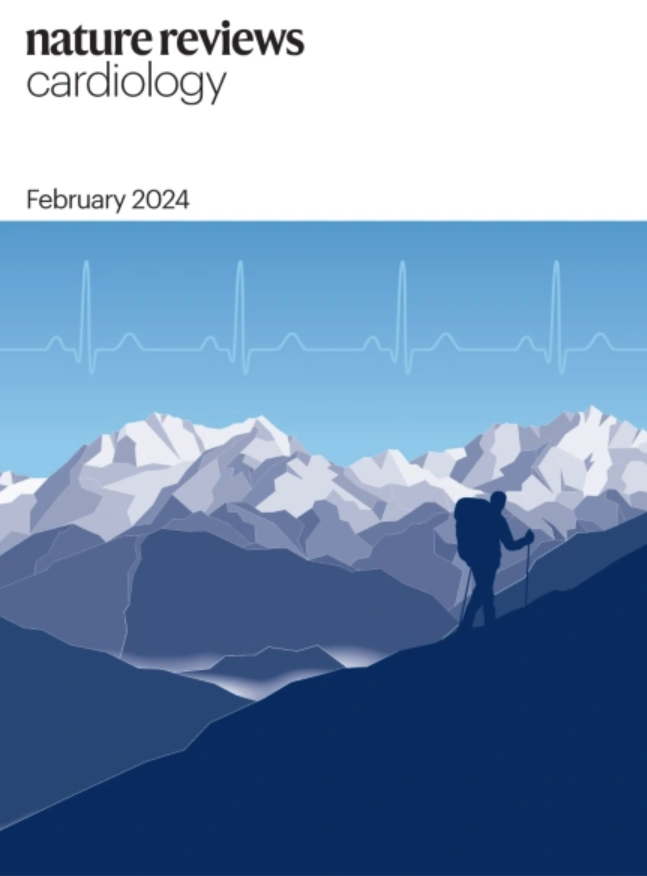多模式、基于装置的心血管自主神经系统靶向治疗。
IF 44.2
1区 医学
Q1 CARDIAC & CARDIOVASCULAR SYSTEMS
引用次数: 0
摘要
植入式传感器和执行器的小型化,结合交互式建模和高分辨率成像的进步,正在推动医疗设备的使用,以抵消心血管系统神经控制受损。在这篇综述中,我们讨论了目前这种技术在许多心血管疾病中调节自主神经活动的有效性,包括高血压、心力衰竭和心律失常。我们提倡采用更智能的闭环仿生设备,配备来自多个传感器的反馈,以实现自适应,状态依赖控制,并讨论采用人工智能技术如何促进自动个性化,以满足患者的需求。我们还描述了自主神经回路的转录组学如何指导基于设备的方法。最后,使用干细胞疗法更精确地靶向交感神经回路将有助于优化自主神经调节治疗心律失常的治疗效果。为了使生物电子医学在神经心脏病学中获得临床应用,这些创新必须证明比当代干预措施更有效。本文章由计算机程序翻译,如有差异,请以英文原文为准。
Multimodal, device-based therapeutic targeting of the cardiovascular autonomic nervous system.
The miniaturization of implantable sensors and actuators, combined with advances in interactive modelling and high-resolution imaging, is propelling the use of medical devices for counteracting impaired neural control of the cardiovascular system. In this Review, we discuss the current effectiveness of this technology for modulating autonomic activity in numerous cardiovascular conditions, including high blood pressure, heart failure and cardiac arrhythmias. We advocate for smarter closed-loop bionic devices fitted with feedback from multiple sensors to allow adaptive, state-dependent control, and discuss how the adoption of artificial intelligence technology would facilitate auto-personalization to meet the needs of patients. We also describe how transcriptomics of autonomic circuits can guide device-based approaches. Finally, the use of stem cell therapies to target sympathetic circuits more precisely will help to optimize the therapeutic effects of autonomic modulation for the treatment of arrhythmia. For bioelectronic medicine to achieve clinical utility in neurocardiology, these innovations must demonstrate improved efficacy beyond that offered by contemporary interventions.
求助全文
通过发布文献求助,成功后即可免费获取论文全文。
去求助
来源期刊

Nature Reviews Cardiology
医学-心血管系统
CiteScore
53.10
自引率
0.60%
发文量
143
审稿时长
6-12 weeks
期刊介绍:
Nature Reviews Cardiology aims to be the go-to source for reviews and commentaries in the scientific and clinical communities it serves. Focused on providing authoritative and accessible articles enriched with clear figures and tables, the journal strives to offer unparalleled service to authors, referees, and readers, maximizing the usefulness and impact of each publication. It covers a broad range of content types, including Research Highlights, Comments, News & Views, Reviews, Consensus Statements, and Perspectives, catering to practising cardiologists and cardiovascular research scientists. Authored by renowned clinicians, academics, and researchers, the content targets readers in the biological and medical sciences, ensuring accessibility across various disciplines. In-depth Reviews offer up-to-date information, while Consensus Statements provide evidence-based recommendations. Perspectives and News & Views present topical discussions and opinions, and the Research Highlights section filters primary research from cardiovascular and general medical journals. As part of the Nature Reviews portfolio, Nature Reviews Cardiology maintains high standards and a wide reach.
 求助内容:
求助内容: 应助结果提醒方式:
应助结果提醒方式:


